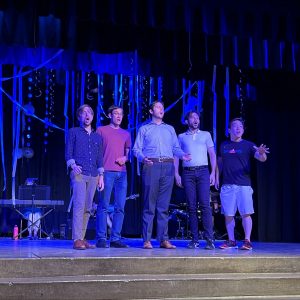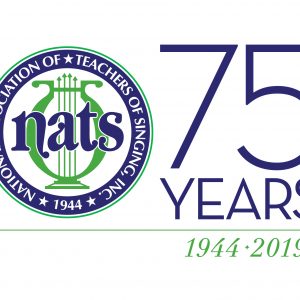
CSU Voice Major, Chandler Peveto, Performs as Emerging Artist with Steamboat Opera
Dr. Nicole Asel, professor of music in the voice area, contacted Peveto about an opportunity with Opera Steamboat after a previous performer found himself unable to sing. This opportunity led to a contract for Peveto to fill the role of Harry in Stephen Sondheim’s Company. When Peveto auditioned a second time this past summer for Opera Steamboat, he was contracted to perform two roles; Pinellino in Puccini’s Gianni Schicchi, and Peter Zegner in Missy Mazzoli’s Proving Up.







